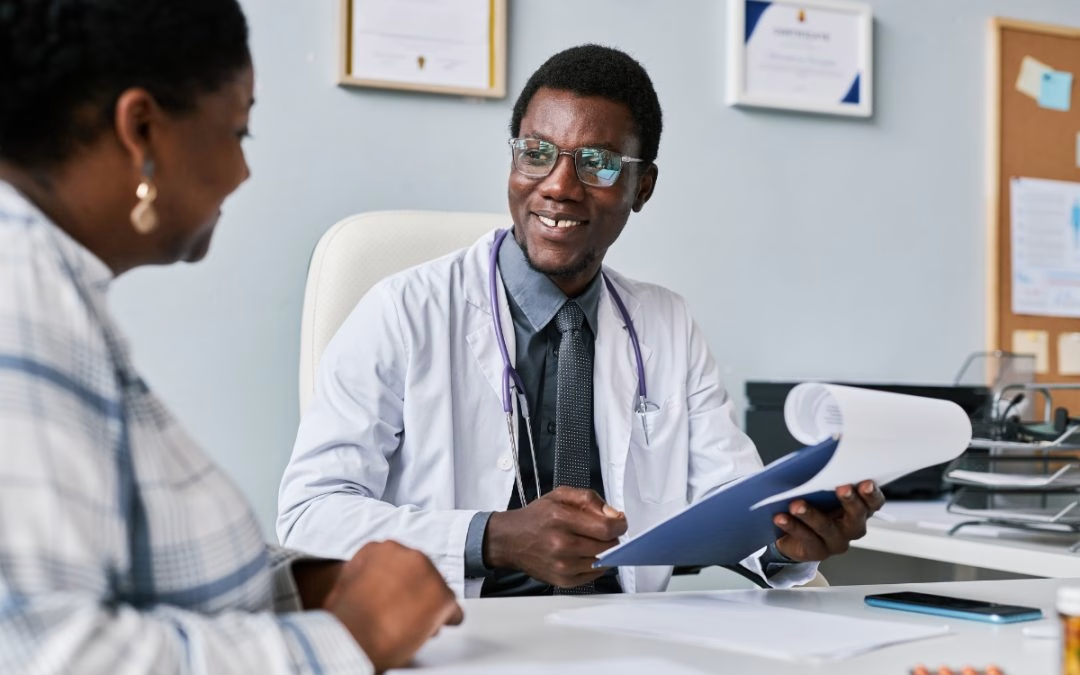Find The Location Nearest Covid-19 Testing
We think you’re located in zip code 37312. Not Right?
STD Testing Near You in Cleveland TN – Confidential Testing
AFC Urgent Care offers compassionate, confidential testing and treatment for sexually transmitted diseases (STDs). No appointment required.

Does AFC Urgent Care offer STD Testing?
AFC Urgent Care of Cleveland, TN offers testing for sexually transmitted diseases (STDs), as well as treatment.
“Although some people are hesitant to discuss their sexual health, STD testing is a very important part of any sexually active person’s medical care,” said Dr. Todd Rudolph, Medical Director at AFC Urgent Care & Family Care. “At AFC Urgent Care, privacy and respect are the cornerstones of our care. Together, we can determine what types of tests are appropriate for you.”
If you would like to learn more about STD testing, or would like to be tested, please visit AFC Urgent Care of Cleveland, TN or call us today at (423) 458-1426.
What are Sexually Transmitted Diseases (STDs)?
Sexually transmitted diseases (STDs), also known as sexually transmitted infections (STIs), are more common than you might think. In 2019, the Centers for Disease Control and Prevention (CDC) reported that Tennessee had a higher rate of chlamydia and gonorrhea cases than the national average. These are two of the most common STDs in the United States. The CDC also estimated in 2018 that 1 in 5 people had some kind of sexually transmitted infection in the U.S.
How do you get an STD?
STDs are infections spread through sexual contact, including vaginal, oral, and anal sex. When you have sex, you are at risk of contracting an STD regardless of how many sexual partners you have had, sexual orientation, or marital status. Since they are so common, getting tested for an STD may be a good idea if you have been sexually active. Preventing and managing STDs is very important for your long term health. This article will help you learn what kind of STDs to look out for, what the risks are, and how you should go about getting tested.
What are the most common STDs?
While these are some of the most common, there are over 20 different types of STDs.
What are the symptoms of STDs?
STDs are generally contracted through unprotected vaginal, oral, or anal sex. All STDs are caused by either bacteria, viruses, or parasites. Some common symptoms of STDs include the following:
- pain during sex
- pain while urinating
- Pain and/or itching to your penis, vagina, vulva, and/or anus
- Sores on and around your genitals
- Abnormal discharge from your penis or vagina
- Bleeding between periods
A lot of people don’t experience any symptoms while they have an STD.
Should I get tested for STDs?
Even if you don’t experience any symptoms at all, it’s very important to get treatment. Avoiding treatment could have long-term, negative effects on your health or cause you to infect others. That’s why getting tested is essential if you are sexually active.
If you are pregnant or planning to have a baby, it’s especially important to consider getting tested as some STDs can be passed on and cause significant health problems to babies during childbirth.
STD Treatment and Prevention
If you think you may have an STD, it’s important to get tested as soon as possible. Some STDs can become a serious threat to your health if they are left untreated for too long. While not all STDs can be cured, almost all of them can be treated and managed to allow you to live a long and healthy life. STDs are usually treated with antibiotics or antiviral drugs.
There are several ways to reduce the risk of contracting an STD. Here are some methods of prevention to consider:
- Use condoms during sex
- Limit your sexual partners and always get screened for STDs before having sex; there are some treatments available for those living with an STD to help reduce the chances of spreading it to others
- Get vaccinated for hepatitis A and hepatitis B
What is Chlamydia?
Chlamydia is a common STD. It is a bacterial infection and can be spread through vaginal, oral, or anal sex. It often comes without symptoms, but if symptoms do develop they will appear one to three weeks after contracting the bacteria. Here are a few symptoms that commonly occur:
- Pain or burning while urinating
- Pain during sex
- Lower abdominal pain
- Abnormal discharge from the penis or vagina
- Vaginal bleeding between periods
Chlamydia can be cured with antibiotics. It’s very important to get tested if you suspect you have chlamydia. While you might feel fine right now, you could suffer serious health issues later on if chlamydia goes untreated. If you have chlamydia while pregnant, you can pass it to the baby during birth which can negatively impact the baby’s health.
What is Gonorrhea?
Another common bacterial infection is gonorrhea. This STD is spread through vaginal, oral, or anal sex and can grow on your genitals, throat, mouth, eyes, or anus. Those with gonorrhea often will not experience symptoms, but if they do develop, here are a few that commonly occur:
- Pain or burning while urinating
- Abnormal discharge from the penis or vagina
- Excessive bleeding during periods or bleeding between periods
- Swollen testicles
- Itching around genitals
Gonorrhea can be cured with antibiotics. If gonorrhea is left untreated, it can lead to more serious health issues later on. If you have gonorrhea while pregnant, you can pass the infection to the baby during childbirth which can negatively impact the baby’s health.
What is Syphilis?
Syphilis is a common STD and bacterial infection that occurs in stages. It is spread through vaginal, oral, or anal sex and affects your genital area and sometimes your mouth. If caught early on, syphilis can be treated easily through antibiotics. However, if it goes untreated for too long, it can be very dangerous.
During the first stage, small sores will appear on your genitals. You will likely not recognize them as syphilis symptoms, as they are painless and look much like ingrown hairs or harmless bumps. During the second stage, you will likely develop a rash and more sores on your genitals, anus, and inside your mouth. You may also experience the following:
- fever
- fatigue
- headaches
- weight loss
- hair loss
- aches
During the third stage, symptoms often disappear. Some people remain unaffected by the infection for the rest of their lives, but about 15% of untreated people experience serious organ and brain damage during a fourth stage. During this final stage, these are some symptoms that can occur:
- Vision and/or hearing loss
- Dementia
- Paralysis
- Blindness
- Heart Disease
- Death
The earlier syphilis is treated the better. If you suspect you have syphilis, don’t hesitate to get tested or ask your doctor about your symptoms.
What is HIV? Is HIV the same as AIDS?
Human Immunodeficiency Virus or HIV damages your immune system so that it can be very difficult for your body to fight off diseases and bad bacteria. HIV can lead to a more dangerous STD known as AIDS. While there is no cure for HIV, there are ways to manage it so that it does not get to this point.
HIV is usually transmitted through vaginal and anal sex. It can also be passed through infected bodily fluids, such as blood or semen, touching open cuts or sores. For example, getting stuck with a needle contaminated with HIV could cause you to become infected. Keep in mind, doctors’ offices, hospitals, and other medical centers have policies in place to keep this from happening, so don’t be concerned about getting your blood drawn or having surgery. Just be sure to do adequate research when deciding where to get your next body piercing.
Many people do not experience symptoms for the majority of the time they have HIV. In the early stages, you may experience flu-like symptoms such as:
- Fever
- Chills
- Sore throat
- Aches
- Headache
- Rash
- Nausea
Some people develop chronic symptoms including:
- Headaches
- Unusual fatigue
- Fever
- Diarrhea
- Swollen Lymph Nodes
HIV affects roughly 38,000 people every year. Because this virus can lead to serious health problems down the road, it’s important to get tested at some point for HIV so that you can manage it well. There are ways to manage it to significantly reduce the risk of passing it on to sexual partners or a baby during pregnancy. With the proper treatment, it’s very possible to have HIV and still live a long and healthy life.
What is Trich or Trichomoniasis?
Trichomoniasis or “trich” is caused by a parasite that is passed through semen, pre-ejaculate, or vaginal fluids touching the genital area, usually during unprotected sex. Trich most commonly affects the vaginal area in women and the urinary tract in men. Most people do not experience symptoms with trich and often don’t realize they have it. If they do, here are some symptoms that may occur:
- Unusual discharge from vagina or penis
- Vaginal itching and irritation
- Unpleasant vaginal smell
- Pain while urinating
- Pain during sex
While you may not experience symptoms with trich, it’s still important to get treatment as you can pass it along to other sexual partners. Trich can be cured with medication, so be sure to get tested if you think you have contracted it.
What is Herpes?
Herpes simplex virus, better known as herpes, affects millions of Americans. Herpes is an irritating STD that comes in two strains, HSV-1 and HSV-2. HSV-1 and HSV-2 both appear as sores on your genital area or on and around your mouth. Oral herpes usually comes from HSV-1, and genital herpes usually comes from HSV-2, but each strand can affect both areas. Have you ever heard of cold sores? Cold sores are oral herpes caused by HSV-1.
Herpes spreads through touching, usually during vaginal, oral, or anal sex. It can also be spread through kissing or general skin-to-skin contact after touching your mouth or genitals without washing your hands first. You can spread sores to yourself or others this way. These sores are often itchy and blistery, but they usually heal within a couple of weeks. Some people with herpes are asymptomatic and may unknowingly spread the virus to others.
There is no cure for herpes, but there are medications to help manage it. While it is highly contagious, it is not a dangerous or life-threatening virus. People can live very normal lives while infected and medication will help reduce the chances of passing herpes to others.
What are Pubic Lice?
Pubic lice, also known as crabs, are tiny parasites that live and reproduce on your pubic hair and the skin around your genitals. You may be able to see these tiny insects or their white eggs if you look closely. If you suspect you have pubic lice, search for tiny, crab-looking insects in and around your pubic hair. A common misconception is that bad hygiene and uncleanliness causes pubic lice. This is not true. Pubic lice are very common and easily transmitted through sexual contact. They can also be passed by touching anything infected with pubic lice such as chest hair, facial hair, or infected bedding and towels. Pubic lice do not survive very long apart from a human body, so they rarely spread without human contact. Symptoms for pubic lice can include the following:
- Itching on and around the genital area
- Tiny, irritating bumps on or around the genital area
- Fever
- Fatigue
Pubic lice are not dangerous or life-threatening. They are easy to get rid of with over-the-counter medication. If you have pubic lice, be sure to thoroughly clean any clothing, bedding, or towels that you used while infected.
Is Hepatitis considered an STD?
There are multiple strains of hepatitis, viral infections that cause inflammation to your liver. Hepatitis is a serious virus that can be very dangerous to your health. Fortunately, the most serious strains are preventable through vaccination.
Hepatitis A, B, and C are the most common strains. Hepatitis A is usually transmitted through eating or drinking after someone with the virus. Hepatitis B is typically contracted through sexual activity. It is passed through contact with infected bodily fluids such as blood, semen, and vaginal fluids. You cannot contract hepatitis B through saliva. Hepatitis C is normally transmitted through contact with infected blood, often by sharing contaminated needles. It is possible to contract any of these strains during sex, but hepatitis B is passed during sex most frequently.
While some people with hepatitis are asymptomatic, common symptoms of hepatitis A, B, and C include the following:
- Fever
- Fatigue
- Diarrhea
- Loss of appetite
- Nausea and vomiting
- Dark urine and light-colored poop
- Joint and muscle pain
Hepatitis A and B are typically the most dangerous strains and are incurable. The good news is, they are easily preventable through vaccination. It is recommended that children get vaccinated, as these strains can be serious and are incurable. There is not a vaccine for hepatitis C, but sometimes it can be cured through treatment. There are medications available to treat hepatitis B and C, but not A.
Learn more about AFC's Hepatitis Testing Panels
What are less common STDs?
Below are some less common STDs, but they still affect people every year:
- Scabies
- Chancroid
- Molluscum contagiosum
- Lymphogranuloma venereum
 How Can We Help?
How Can We Help?
- PATIENT SERVICES
- COVID-19 SERVICES
- TELECARE
- EMPLOYER RESOURCES
- PATIENT RESOURCES
- ABOUT US
AFC Urgent Care FAQs
-
What will my STD test consist of?
That depends on what we’re ultimately testing for. Some tests include swabs of the genitals or mouth, while others require urine or blood tests.
-
What are the risks of leaving STDs untreated?
There are many different STDs, so the risks will depend on the disease. Cancer, infertility, transmission to sexual partners, and harm to unborn babies are a few risks of leaving STDs untreated.
-
Which STDs can AFC test for?
We’re able to test for some of the most common STDs including gonorrhea, genital warts and herpes, chlamydia, HPV, and more. Call your local clinic for a full rundown of the testing they can provide.
Q&A You Want to Answer?

Don't wait to get the medical attention you need.
CALL US TODAY | (423) 458-1426


